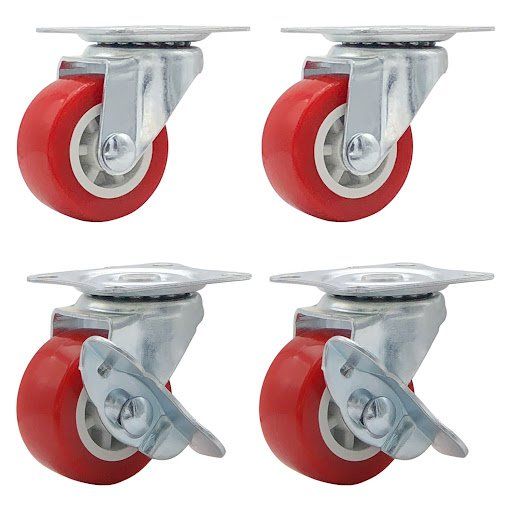Caster wheel supplier companies are a critical part of any material handling equipment. They ensure that equipment can move and function without any issues.
These companies stock a huge variety of casters and wheels. They also have the experience to help you choose the right one for your application.
Customer Service
The best caster companies are all about the customer. Whether you’re ordering an industrial cart for a new warehouse or simply need to replace your old wheels with a more modern counterpart, they can assist you every step of the way. Their helpful staff is available to answer your questions, provide recommendations and even arrange for on-site product demonstrations for the lucky few who happen to be in the area. The best ones also boast a full-service showroom for their clients to peruse, complete with demo casters of all shapes and sizes. Keeping up with the latest in caster technology is no small feat, as the industry is constantly changing.
One of the best caster wheel supplier company is Carson Caster, As a leading manufacturer and trader in Dongguan, China, Carson specializes in a wide range of castor wheels, including industrial, heavy-duty, swivel, furniture, stainless steel, and rubber options. Our expertise in high-tech solutions, such as TPR, high-temperature resistant, conductive, and antibacterial wheels, makes us a fast-growing company in the industry.
Quality Assurance
A quality assurance (QA) team at a caster wheel supplier company ensures that products are free of defects. They also conduct testing and evaluations to ensure that the products meet specific standards.
Caster wheels are manufactured in a variety of materials and dimensions to fit a wide range of applications. The material and size of the wheel affect its maneuverability, durability, noise levels and more.
For example, casters with rubber edges absorb shock, reduce vibration and improve floor protection. They can be used on concrete and steel surfaces.
Manufacturers also produce a range of caster wheels with a combination of materials, such as aluminum, plastic, steel and stainless steel. These materials provide superior resistance to abrasion and scuffing while being lightweight and quiet.
QA teams at caster wheel supplier companies inspect and test every step of the production process. They make sure that the products meet their quality policy and customer expectations.
Certifications
If you want to get quality casters for your business, you should choose a caster wheel supplier company that has industry certifications. This will help you to prevent any defects in the products and ensure that they will last for a long time.
A company with an industrial certification has a higher responsibility to its customers and can provide better service. This means that they will be able to offer compensation solutions whenever there is a problem with their products or orders.
Casters for food service equipment must be NSF certified to meet stringent health and safety standards. If a company has NSF certifications, this shows that they have done their best to make sure that the casters are safe for use in food facilities.
The casters can be made from different materials including cast iron, ductile iron, forged steel, polyurethane, phenolic resin and rubber materials. They can also have different sizes and load capacities.
Samples
Many caster wheel supplier companies offer free samples of their products, so you can see how their caster wheels look before you place your order. This is a great way to save money on your order and ensure that the company you choose can provide you with quality products.
Caster wheels are a vital tool for material handling in various industrial applications, and they play a major role in increasing productivity and improving the efficiency of industrial processes. They also help reduce noise levels in industrial environments, and they have been used to enhance worker safety since the beginning of time.
Caster wheels are especially useful for workplaces that require frequent adjustments, such as in manufacturing facilities. They help employees move heavy equipment safely, and they also allow workers to change the position of their workstations without having to dismantle their equipment.

















